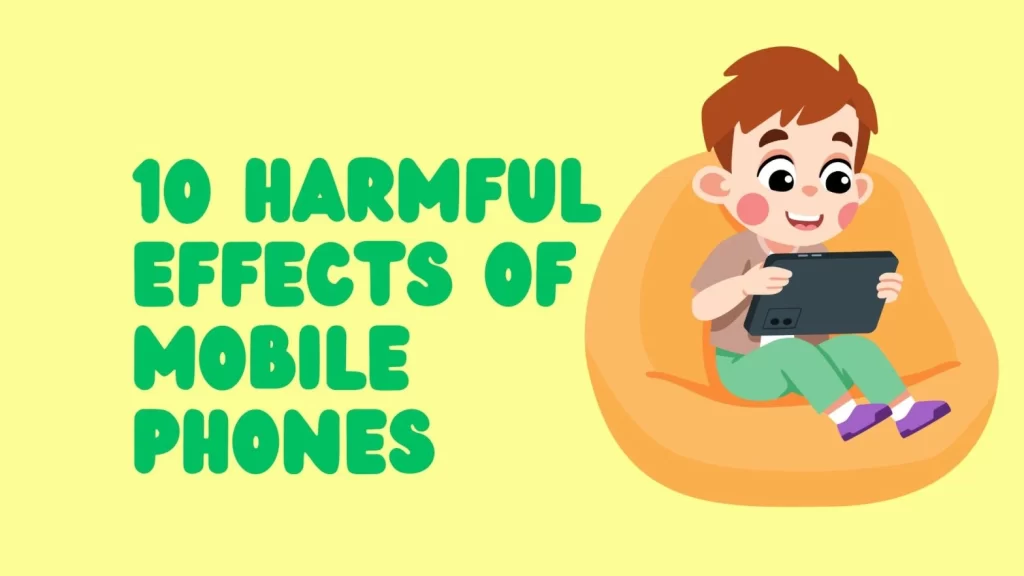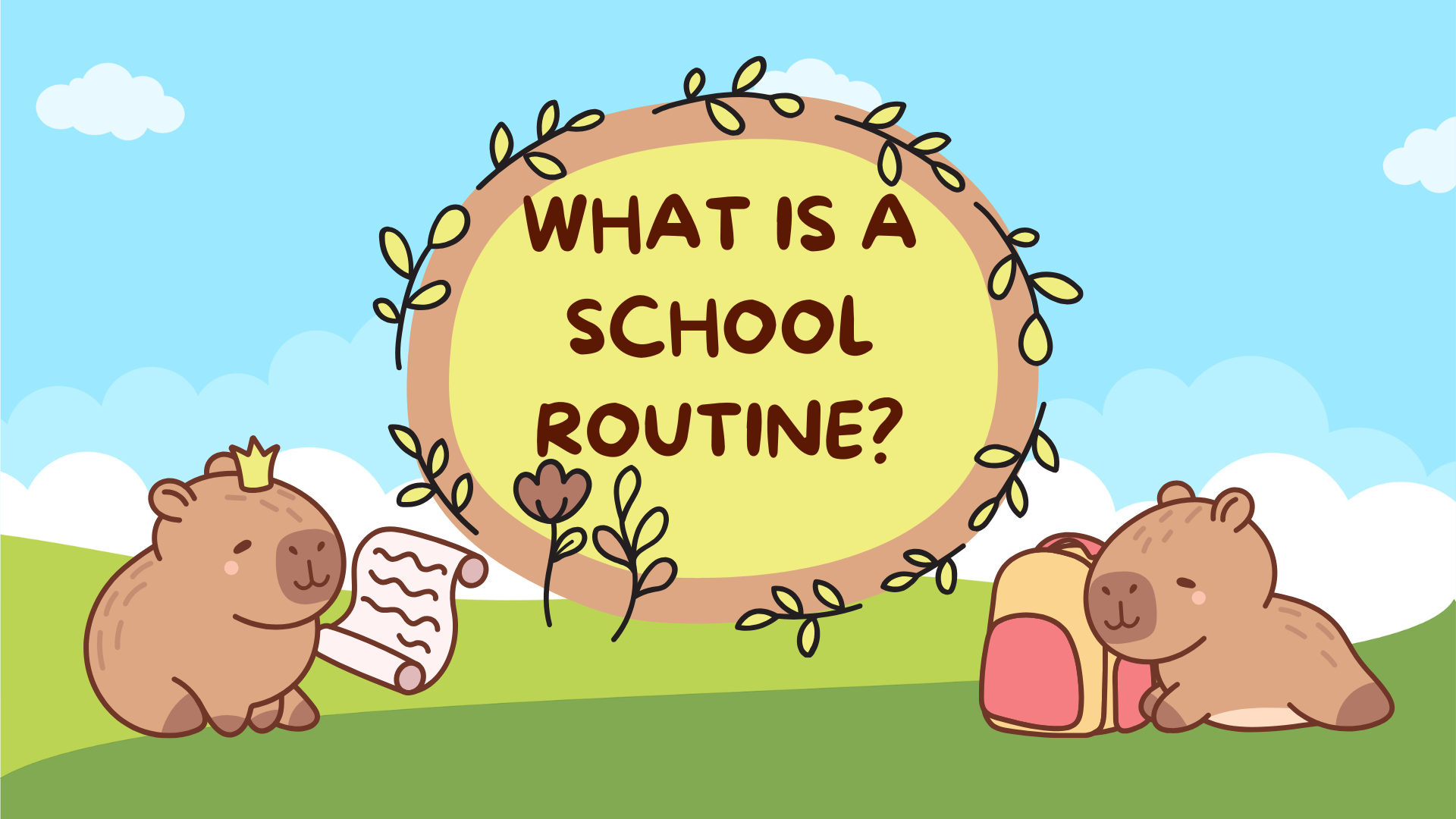
10 Harmful Effects of Mobile Phones on Students
Smartphones have become an integral part of our technologically developed lifestyles because it is indispensable for communication. The pocket-sized devices have now become our primary source of information. From a young age, parents allow children to use cellular devices for entertainment. Our busy lives tend to make us take resort to these devices to keep kids engaged. But today we’re going to discuss 10 harmful effects of mobile phones and why we must limit usage for students.
10 harmful effects of mobile phones on students
Here are some of the harmful effects of mobile phones on human health and how they impact academic preparation for students:
Limited physical activity
The foremost way mobile phones have impacted Gen Z and Alpha is by robbing them of a childhood that millennials spent outdoors. 90s kids never had a mobile phone to come back to. They used to come from school, have lunch, take a nap, and go out playing with other kids in the colony – that’s how children are supposed to grow up.
But the kids who grew up post-2000s had a phone in their hands early in life. It declined physical activity, promoted poor posture which now leads to musculoskeletal issues. Lack of interest in nature and outdoor activities detaches children from the adventures of the unknown. The human instinct to grow in the wild makes us courageous risk takers. So, there is a lot of mental impact as well as physical.
Risk of addiction
One of the worst out of 10 harmful effects of mobile phones is finding your child getting addicted to gadgets. As adults, we are more prone to keep a check on how regularly we use our phones. We have work, responsibilities, and inevitable day-to-day tasks that often don’t let us be on our phones all the time.
But when we make easy access to these devices for kids and let them use them unattentively, it might lead to addiction. Like any form of addiction, even this becomes difficult to let go. Growing teens start rebelling against their parents when they are deprived of cellular usage. Such behavior can lead to anger issues as well.
Distraction from studies
Parents give cellphones to their children primarily to stay connected when they’re not around. But if the device becomes their muse, they overuse it and distract from things that really matter. Constant notifications disturb students during studies as they break their concentration. Growing kids in this generation have lower cognitive abilities as these devices breed fickle minds.
Poor academic results
One of the most harmful effects of mobile phones for students is a lower ability to learn and grasp educational information. A distracted mind is detrimental to academic performance. Studies require focus and an inattentive mind decreases productivity. If students find themselves incapable of learning, they can start avoiding studies and worsen their progress.
Increased risk of mental health
The digital exposure at a young age influences their minds in multiple ways that parents often don’t realize. Growing kids have fragile brains that are easy to manipulate. From early comparison of lifestyle to constantly wanting to maintain an online persona, children often get consumed in social media. These can lead to feeling of depression, anxiety, and loneliness that takes a toll on their mental health.
Inadequate sleep
If your child has a separate bedroom and they have access to their mobile phones at all times, they might not be able to control their usage. Parents must monitor their usage as chances are that your child gets inadequate sleep otherwise.
Young bodies don’t have the innate urge to sleep for regular hours as they feel their bodies can manage without it. They scroll through their phones till late in the night and this can lead to a disrupted body cycle and conditions like insomnia.
Health issues
Excessive usage of mobile phones while bending your neck downwards can lead to shoulder, neck, and upper back issues. The muscles in this area are strained and can constantly experience pain. There is new medical condition called “text neck” that can lead to tendonitis alongside carpal tunnel syndrome.
Long hours of screen time are also detrimental to the eyes, as they leave them dry. Known as the Digital Eye Syndrome, such conditions lead to headaches, fatigue, and increased eye strain. In severe cases, it causes harm to the retina and risk of macular degeneration.
Exposed to cyber bulling
Young children are susceptible to cyberbullying as they fail to control what type of content they are engaging with. Anonymity in the digital landscape makes it easy for bullies to target and harass others for their personal satisfaction.
Children feel more emotionally distressed because they are sentimental and aren’t well-versed with the harshness that exists otherwise. Such conditions can leave a psychological impact that they don’t share out of embarrassment but feel harassed while being cornered.
Poor social skills
The kids you see glued to their phones at all times are also the ones who fumble the most when they try to socialize in person. They are so subsumed by their cellular devices and text-based communication medium that they can’t articulate otherwise.
These issues can become apparent when they have to interact with teachers and peers in school. A tendency to speak less will reduce their cognitive abilities needed to compete in debates, perform a viva, or simply interact.
Behavioral issues
Addiction to phones is called nomophobia and it is a stage where people start having withdrawal symptoms and react oddly. It is a rising concern among students in school and colleges that affects their social interactions and their ability to function. This condition is linked with ADHD as well. While it doesn’t cause attention deficit hyperactivity disorder, it can aggravate existing conditions.
How to engage students without mobile phones?
As a school, we are constantly focused on making studies interesting and interactive. When learning becomes fun, students are keen to pick up their books as much as they want to be on their phones. We encourage teamwork through art and creativity to grow the essence of supportive growth and accomplishment.
To parents, we recommend as much attentiveness as possible to ensure their kids are less glued to digital devices. Connecting with nature through outdoor activities on weekends, telling stories we grew up hearing, and teaching life skills like cooking and cleaning from a young age are ways to keep kids engaged. They don’t just learn early but they also value their surroundings, feel present, and don’t lose focus needed for educational upliftment.







